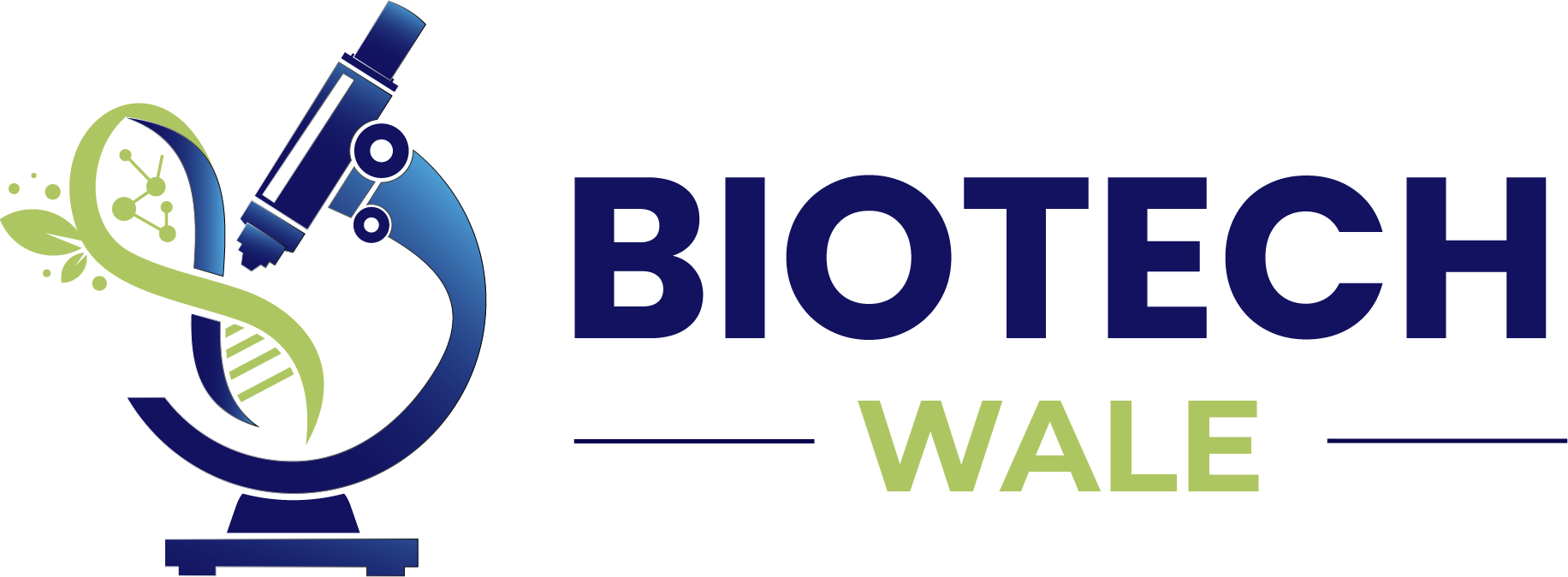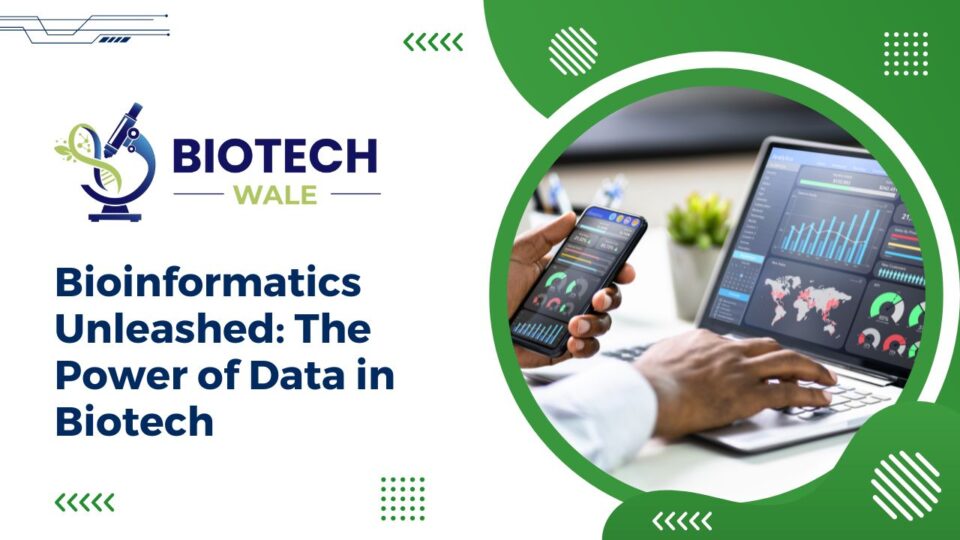Introduction to Bioinformatics
Welcome to the thrilling world of Bioinformatics, where cutting-edge technology meets the boundless possibilities of biotech. In this digital age, data reigns supreme, revolutionizing how we approach research and development in the life sciences. Get ready to dive into the realm where information is power and solutions are limitless. Let’s explore how bioinformatics is reshaping the future of biotechnology with its endless potential and groundbreaking innovations.
The role of big data in biotech and how it impacts research and development
Bioinformatics is revolutionizing the field of biotechnology by harnessing the power of big data. With massive amounts of biological information being generated daily, researchers can now analyze and interpret complex datasets more efficiently than ever before. This wealth of data enables scientists to uncover patterns, correlations, and insights that were once impossible to detect.
By utilizing bioinformatics tools and techniques, researchers can streamline drug discovery processes, personalize medical treatments, and optimize agricultural practices. The integration of big data in biotech has significantly accelerated research and development efforts across various industries.
The impact of big data in biotech extends beyond traditional methods, paving the way for groundbreaking discoveries and innovations. As technology continues to advance, the role of bioinformatics will only become more prominent in shaping the future of biotechnology.
Advancements in Bioinformatics Technology
Advancements in bioinformatics technology have revolutionized the way we approach research and development in the biotech industry. With the ability to analyze vast amounts of biological data, scientists can uncover valuable insights that were once hidden.
The integration of artificial intelligence and machine learning algorithms has significantly enhanced the efficiency and accuracy of data analysis processes. This enables researchers to identify patterns, predict outcomes, and even discover new drug candidates at a much faster pace.
Moreover, cloud computing solutions have made it possible to store and access massive datasets securely, facilitating collaboration among scientists worldwide. The accessibility of these technologies has democratized bioinformatics, allowing more researchers to leverage its power for innovative discoveries.
As bioinformatics continues to evolve, we can expect even greater breakthroughs in fields such as personalized medicine, agriculture, and environmental conservation. The future holds immense potential for leveraging bioinformatics technology to address complex challenges facing our society today.
Real-world applications of bioinformatics in drug discovery, personalized medicine, and agriculture
Harnessing the power of bioinformatics has revolutionized various industries, including drug discovery, personalized medicine, and agriculture. In drug discovery, researchers can analyze vast amounts of genomic data to identify potential drug targets and develop more effective treatments with fewer side effects. Personalized medicine utilizes bioinformatics to tailor medical treatments based on an individual’s genetic makeup, leading to better patient outcomes and reduced adverse reactions.
In agriculture, bioinformatics plays a crucial role in crop improvement by analyzing plant genomes for desirable traits such as disease resistance or higher yields. This enables farmers to optimize their cultivation practices and produce healthier crops more efficiently. The applications of bioinformatics in these fields continue to expand, driving innovation and pushing boundaries in biotechnology.
Challenges and limitations of using bioinformatics in biotech
Navigating the world of bioinformatics in biotech comes with its fair share of challenges and limitations. One significant obstacle is the sheer volume of data generated, making it crucial to develop efficient algorithms to analyze and interpret this information accurately.
Another challenge is the need for interdisciplinary collaboration between biologists, computer scientists, and statisticians to ensure that the data is interpreted correctly. Additionally, ensuring data privacy and security poses a challenge due to sensitive genetic information being handled.
Moreover, standardizing data formats across different databases remains a hurdle as it can hinder seamless integration and analysis. The complexity of biological systems also adds a layer of difficulty in predicting outcomes accurately using bioinformatics tools.
Despite these challenges, continuous advancements in technology are helping to overcome these limitations gradually. By addressing these obstacles head-on, we pave the way for more groundbreaking discoveries in biotechnology through bioinformatics.
The future of bioinformatics: advancements and potential impact on the biotech industry
The future of bioinformatics holds immense potential for the biotech industry. Advancements in AI and machine learning will revolutionize how we analyze and interpret biological data, leading to more precise drug development processes. With the rise of personalized medicine, bioinformatics will play a crucial role in tailoring treatments to individual patients based on their genetic makeup.
Additionally, as agriculture faces challenges like climate change and population growth, bioinformatics can help optimize crop yields through genomic analysis. The integration of multi-omics data will provide deeper insights into complex biological systems, paving the way for groundbreaking discoveries in disease mechanisms and treatment strategies.
Innovations such as CRISPR technology combined with bioinformatics tools will enable targeted gene editing with unprecedented accuracy. As researchers continue to unlock the mysteries encoded in our DNA, the possibilities for improving human health and sustainability are endless.
How to get started with bioinformatics: education, skills, and resources
Are you ready to dive into the exciting world of bioinformatics? Getting started may seem daunting, but with the right approach, you can embark on this fascinating journey.
Education is key – consider pursuing a degree in bioinformatics or related fields like biology, computer science, or data science. This will provide you with a solid foundation to build upon.
Developing essential skills such as programming languages (Python, R), statistical analysis, and data visualization will be invaluable in navigating the complex datasets involved in bioinformatics.
Don’t forget about resources! Online courses, workshops, and conferences can expand your knowledge and keep you up-to-date with the latest advancements in the field. Joining online communities and forums can also help foster connections with fellow bioinformaticians.
With dedication and continuous learning, you’ll soon find yourself equipped to tackle real-world challenges using bioinformatics tools and techniques.
Conclusion: The Impact of Bioinformatics on the Future of Biotechnology
In a world where data is king, bioinformatics stands at the forefront of revolutionizing the biotech industry. The impact of bioinformatics on drug discovery, personalized medicine, agriculture, and various other fields is undeniable. As technology advances and our understanding of genomics deepens, the potential for bioinformatics to shape the future of biotechnology knows no bounds.
By harnessing the power of big data and cutting-edge technologies, researchers can uncover insights that were once unimaginable. From predicting new drug targets to customizing treatments based on individual genetic profiles, bioinformatics continues to drive innovation in ways that were previously inconceivable.
As we look ahead to the future of biotechnology, it is clear that bioinformatics will play an increasingly pivotal role in shaping how we approach research and development. By embracing this transformative field and equipping ourselves with the necessary skills and knowledge, we can pave the way for a new era of possibilities in biotech.
The journey towards unlocking the full potential of bioinformatics may be challenging at times, but its promise is boundless. With dedication, perseverance, and a commitment to learning from both successes and setbacks along the way, we have the opportunity to propel biotechnology into uncharted territories – all thanks to the power of data unleashed by bioinformatics.





Average Rating